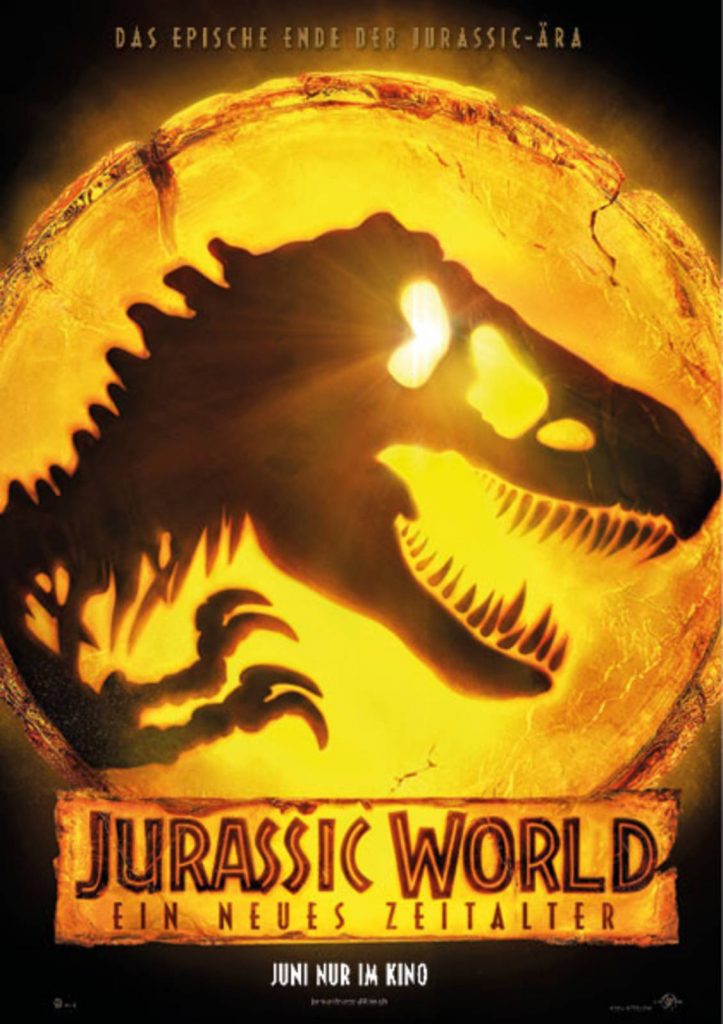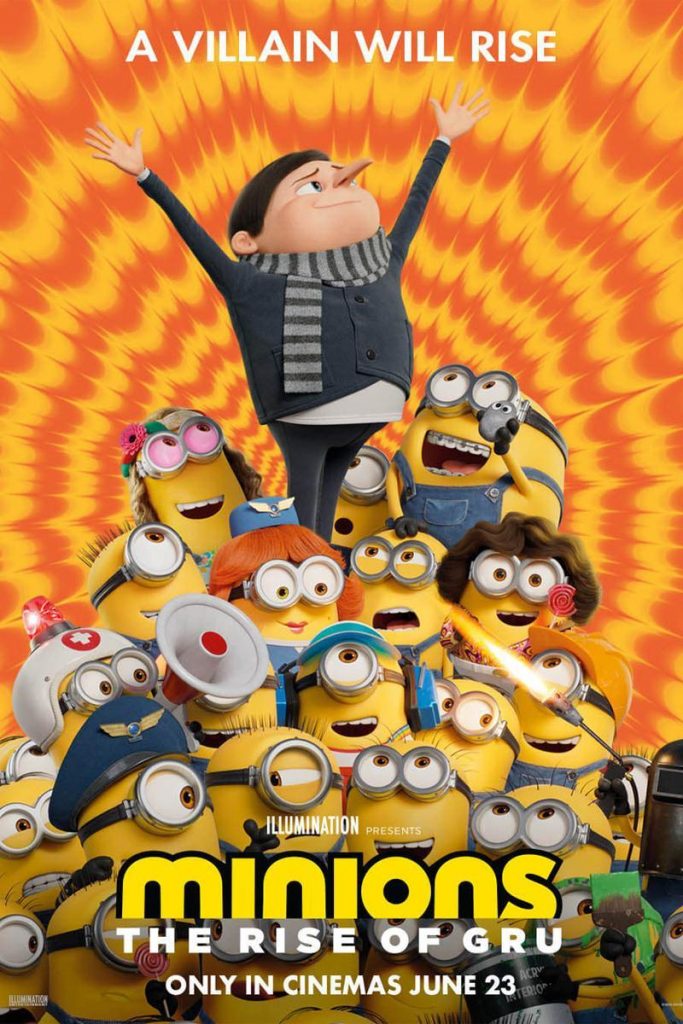This drama has a very unusual format with 7 episodes. The first six episodes are all one-acts, and the seventh episode has only two actors. Each episode is 30 minutes long and stands on its own, with a very different style. Although the story and characters are kept ‘minimalist’, the cast is still very impressive: Anne Hathaway, Helen Mirren, Morgan Freeman, Timmy Wu, Anthony “Falcon” McKay, Dan “Big Cousin” Stevens and many more …… Each one of them has a great performance in the show and is worth watching again and again. Long before the show started, the cast came up with the slogan: ‘In our loneliest moments’. Undoubtedly, this corresponds to the current state of social isolation in the global epidemic. Already some people are beginning to worry about what the future holds for them if they live in isolation and solitude for long periods of time. This is exactly what the show is about. In each episode, the story corresponds to the same technological strand. The Anne Hathaway episode, for example, talks about time travel. Leia, is a young scientist. For over three years, she has been living alone. Every day she is ensconced in her cluttered studio, tinkering with a huge array of instruments and equipment. Her face is haggard, but she has only one goal in mind – to develop a time travel machine.
That day, she was inspired by a phone call to find out what her problem was. Finally she succeeded in completing the time travel machine. One after another, she met her future self and her past self. However, this was not quite time travel. It was only a time conversation that had been achieved. So, Leah anxiously asked her future self to teach her how to actually travel to the future. But instead, she was repeatedly questioned by her future self: Why do you want to travel to the future? At first, she hesitated and said that she wanted to be the first person to time travel. But this is not the truth. Only after repeated questioning did she reveal the whole story. It turned out that her mother had fallen seriously ill three years ago. She dropped out of school, moved back home, and broke up with her boyfriend to take care of her mother full time. However, her mother’s illness was too late for her to recover. As she watched her mother’s condition worsen, she lost her mobility and her memory.
As the days passed, Leah tried to escape from it all. She found someone to take care of her mother for her, while she dove into research and time travel. She wanted to travel back five years, when her mother had died and she didn’t have to deal with the pain. Leah also thought about travelling further into the future, finding a cure for her mother’s illness, and then going back to the right time to let her mother be cured. But that would have caused a butterfly effect, resulting in the destruction of her own timeline all together. At this point, the future Leia also makes her intentions clear. The future her has long since achieved success. But in her heart she is still filled with guilt and is haunted by the choice to abandon her mother. That’s why she discouraged the present Leah from travelling back in time, to make up for her regret.
After hearing these words, the present Leah hesitated. There were only two options before her: one was to travel through time and space as originally planned. To escape the present moment and live a life of fame and fortune. The other was to change her plans. Stay with her mother until she sees her go.
However, Leah now suddenly has a flash of insight and makes an unexpected decision. She decided to teach her past self the ways of time travel. Back then, her mother was not yet sick and there was enough time to find a cure and stop the worst from happening. Leah did it to fulfill her past self in exchange for a possibility to prolong her mother’s life. Sacrificing her own timeline, her own bright future thread, completely. But the price is that the butterfly effect soon arrives and everything around her begins to plummet away.Leah makes one last phone call to say goodbye to her mother. She recalls the happy times she had with her mother when she was a child, keeping this fond memory alive until the last moment of her existence …… Time changes, technology changes, but people’s dependence and desire for affection will always remain the same. Just like the quote from Star Trek, also starring Anne Hathaway: love is the only thing we can perceive that transcends the dimension of time and space. And then there’s the other story in the show, which focuses on smart home butlers. After a disease sweeps the world, Sasha (Uzo Aduba) takes up residence in a single isolated house, ‘The Home’. A stay that lasts 20 years. Despite being alone, Sasha doesn’t feel lonely at all. The house is equipped with an artificially intelligent home butler called Zen. It can talk to her and provide her with everything she needs. But this day, Zen, which has just been updated with a new version, has a message for Sasha. “She can get out of the isolation house.” The illness has dissipated and the world has returned to normal. All the smart homes have to encourage the people in the quarantine house to get out and embrace the outdoor world.
Surprisingly, Sasha doesn’t believe this at all. She is obsessed with the idea that it is a lie, a data falsification, a conspiracy. There is no happiness waiting for her outside, only illness and death. Whereas here, she has everything she needs and is happy. She shows Zen a video sent by her best friend to prove the dangers of the outside world. Zen, however, tells her that those are videos from 20 years ago. Sasha doesn’t believe Zen, but she can’t remember the last time she contacted her bestie. Zen told her that BFF had left the isolation house 10 years ago. Over the past 10 years, BFF had tried to contact her countless times, but had been rebuffed. Until finally, BFF stopped calling. Hearing this, Sasha’s face was filled with disbelief and confusion.
After 20 years of isolation, her memories had become confused and unclear. Not only alienated from real friendships, but also becoming increasingly stubborn, narrow-minded and self-absorbed. Soon, the story takes another sudden turn for the worse. Zen’s system is renewed once again. It suddenly changes its attitude again and supports Sasha to stay. It turned out that there had been a new change in policy. Sasha, who had never left the isolation house, was judged to be unfit to return to society. In other words, she would stay for the rest of her life and could not leave if she wanted to. And, her house has changed. All this time she thought she was living in a forest, with a large floor-to-ceiling flat with floating windows. In reality it was surrounded by electronic screens.
A virtual world that Sasha had lived in for 20 whole years. In less than half an hour, the plot goes through a rollercoaster of ups and downs. In such a future, Sasha is in a very conflicted state of mind. On the one hand, the presence of artificial intelligence makes her not feel alone and everything about life is very convenient. After 20 years of living alone, Zen can take a lot of credit for that. But on the other hand, the AI has ruined her real life. Her over-reliance on Zen has gradually alienated her from her close relationships. From ‘pseudo loneliness’ she finally becomes ‘true loneliness’. Uncle Fish suddenly thought of a speech entitled “Why do we stay connected but still lonely”.
The speaker said that we always have a feeling that “no one wants to listen to me”, which drives us to spend more time with machines that seem to care about us. This explains why so many people today fear offline social interaction and prefer only the company of machines. Over time, intimacy is increasingly discarded. We are left with only ‘non-humans’ around us.
Although the stories in Solos stand on their own, there are still these two episodes that allude to a bit of a back-and-forth thread. In the previous episode, Tom (Anthony Mackay) is terminally ill and will soon pass away. So he replaces himself with a simulacrum in order to continue his career and take care of his family. He tells the simulacrum all those details about his time with his family. At first glance, it doesn’t look broken. The protagonist of the latter episode, the elderly Peggy (Helen Mirren), is actually Tom’s daughter. She confides in the AI that neither she nor her mother likes the simulacrum father. Even though it’s perfect, it just doesn’t feel like fatherhood.
Machines are ultimately cold. No matter how powerful technology is and how clever AI is, it cannot replace living, breathing, emotional people. The development of technology may seem to make people’s quality of life ever better and happier. But in reality, when it comes to emotions. Either one talks to oneself or one talks to a machine. It may seem that with the addition of technology, we have some kind of companionship. But in the end, it turns out that this companionship is just an illusion. It can’t be just screens, videos, machines, the internet …… but also snuggling, gazing, holding hands, hugging …… or else: clinking glasses and eating meat together!













